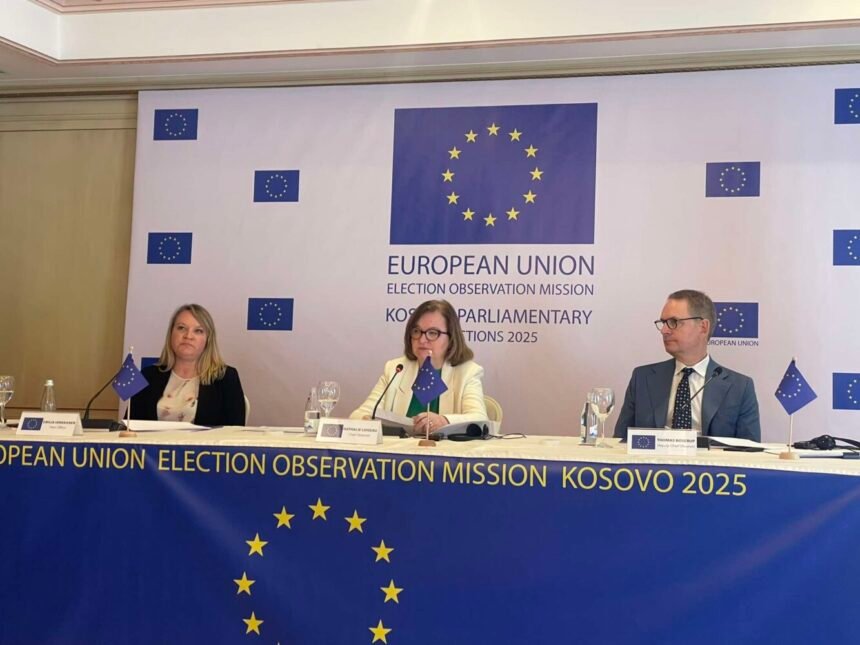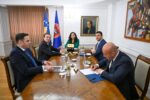The European Union Election Observation Mission has released its final report analyzing the recent parliamentary elections in Kosovo, conducted amid a sensitive political and institutional environment. The mission highlighted multiple challenges during the process, including efforts at external interference.
Natalie Loiseau, Member of the European Parliament and head of the observation mission, stated that there were observable attempts by the Serbian state to influence voting — a practice she deemed unacceptable among neighboring countries.
“Regarding external interference, I have generally noted tendencies from abroad attempting to affect the vote, which should not happen between neighbors. Public broadcasters, radio, television, and programs targeting minority communities will be improved to ensure voters from all communities in Kosovo have better access to relevant election information,” Loiseau explained.
The report offers a detailed assessment alongside 19 recommendations aimed at strengthening Kosovo’s future electoral processes.
“It is a pleasure to return to Prishtina and present the final report of the EU Election Observation Mission on Kosovo’s parliamentary elections. Since arriving two days ago, I have met with the President of Kosovo, the Acting Prime Minister, and the Chair of the Central Election Commission to deliver the report and discuss its recommendations,” Loiseau added.
She expressed gratitude to Kosovo’s citizens for their democratic commitment and thanked election institutions for their cooperation and hospitality.
The EU mission commenced its work in early January and maintained continuous observation throughout the electoral process. It deployed 104 observers from all 27 EU member states, as well as from Canada, Norway, and Switzerland. Additionally, a delegation from the European Parliament joined the mission.






